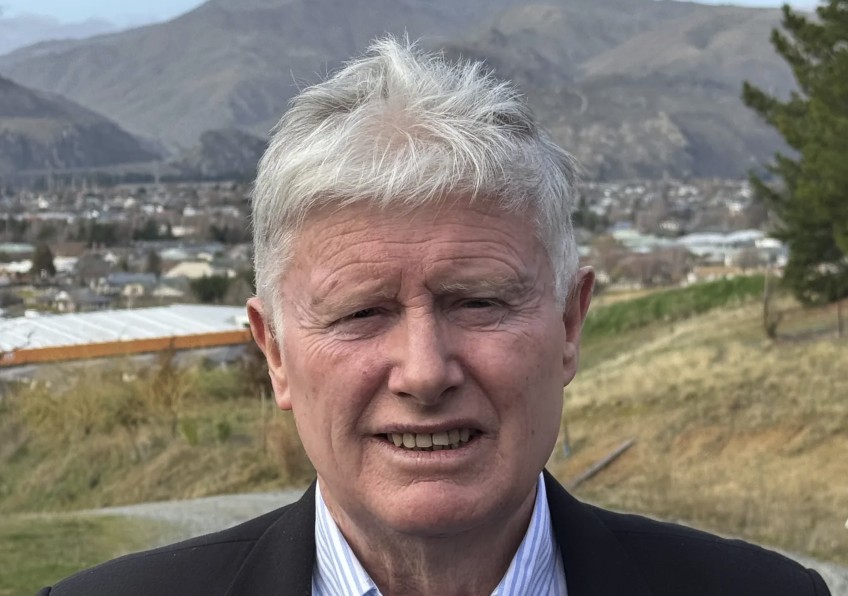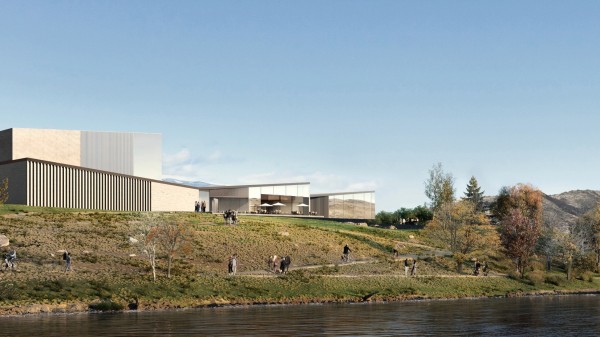CODC mayoral candidate seeks "community-led" not "council-led."


By Zizi Sparks.
Charlie Sanders is hoping to bring his ‘common-sense thinking’ and a clear direction to the Central Otago District Council.
Sanders is one of three people vying to be the Central Otago District mayor. He is also standing to be a councillor in the Cromwell Ward.
He was born and raised in Cromwell where he still lives. His grandfather was once Cromwell’s mayor and a key player in the Roaring Meg power scheme, Sanders says.
“I'm proud to carry that legacy forward, not out of ambition, but with a deep belief that Central Otago needs strong leadership and clear direction,” he says.
“I bring business acumen and common-sense thinking and a determination to get things done right.
“The costs of living here are making it nearly impossible for young families and retirees to stay here or for our grandchildren to even afford a home in the place they grew up in.”
Sanders says there is a feeling in the community of being “left out in the cold”.
“It is promising to see a good number of candidates for the ‘25 elections which speaks volumes to the dissatisfaction in the community, which is very positive for democracy.”
If elected, Sanders’ top three priorities are to “stop the waste and the selfish projects, to give the community full transparency and we need to maintain ownership of our resources”.
The latter point refers to the Southern Water Done Well proposal he opposes, saying it will “have a huge impact on the livelihood of people”.
The proposal saw Central Otago, Clutha and Gore district councils agree to present a joint council-controlled organisation (CCO) in their Water Services Delivery Plans, due to be presented to the Government by September 3.
Sanders believes water is a core business that should be handled by the council and “run locally”.
“I don’t believe that we should be taking that out of the hands of council.
“We need to keep ownership of it. I just think it's wrong that local water done well can take away any chance of any choice of how things operate or the running of it.”
If the proposal proceeds the councils involved will be shareholders in the CCO and have a say in how services are delivered.
Sanders believes the council has been “focusing on flashy” rather than on basics like future proofing infrastructure.
He uses the Cromwell Memorial Hall as an example.
The total cost of a replacement hall and events centre is projected to be $45.8 million funded through mix of endowment land sales, external grants and debt funding.
The facility will include an auditorium, meeting rooms, museum and cafe and serve as a hub for local events, performances and gatherings, according to the council website.
“One of my biggest concerns is that money's been wasted on things like the Cromwell Town Hall. That money would have been better spent on the infrastructure rather than on a hall,” Sanders says.

-
Cromwell's new events centre will replace the town's memorial hall. (CODC/Jasmax)
Affordable housing is a hot topic. Sanders says one of the main problems in his view is the development costs facing developers.
The council can charge development contributions to help with investment into new or upgraded assets and services to serve new developments.
“Developers seem to have to fight to get their projects off the ground and the costs they’re put through having to attend courts and tribunals for planning and environmental reasons.”
Sanders also suggests looking at endowment blocks in the different district council wards.
“That endowment land needs to be looked at from a point of view of why sell it when you could actually use it? We could perhaps build affordable housing on it, and have a joint venture with private enterprise, so that council gets an income from the land but maintains ownership of it.”
He suggests people could buy into a long-term lease to help people into housing.
“There aren’t too many ways council can help with cost of building, but there is a way that they could use what land they've got so that people can get a leg up and get into the property market.
“Instead of paying huge rent, you're actually paying a mortgage on a piece of dirt or on a house that you actually own and you can use that as a stepping stone.”
Sanders believes rates rises should be in line with inflation.
He also thinks the council’s business is being rushed at meetings.
“There’s too much on the agenda at the meetings for people to actually give it their full attention. I think that's one of the biggest problems. If you've got a busy itinerary at a meeting, it's very hard to get focused on all the important issues.”
He says one recent report he saw was “a volume of biblical proportion, with lots of pictures and lots of wordy documents and bits and pieces”.
“To try and find out where we're going and what's going on, it's just quite a bollock of read-through. At the end of the day, things don't need to be that wordy. A report should be concise and factual.”
So what would Sanders do about these issues?
“I think I'll bring common sense to the meetings in that I have a business background and I understand, and I believe for every action, there's an equal and opposite reaction. And I believe that council don't take that into account. They're not looking at the big picture of the implication of some of the things that they're doing and what it's going to mean to the ratepayers of the community.”
There can be tension between the wards in the district and Sanders says it has always been that way.
“At various times, both towns have thought they are the poor cousin. It's happened to both Cromwell and Alexandra. Each thinks the other gets everything and the other one gets nothing,” he says.
“I think the only way we can change that is by being open about what we're trying to achieve. Listening to the people and giving them the ability to put their say forward and listening to them, not pretending to listen to them, which I think is a lot of what's going on.
“There needs to be equity. I dare say, Roxburgh could be thinking the same about Alexandra, you know, like, Ranfurly might think the same.”
Making sure all the wards in the district get a slice of the pie is about being fair, Sanders says.
“You've just got to be fair in the leadership of the thing to make sure that everybody gets a fair go. You just can't favour one over the other. Those days are gone. We're meant to be living as one community now so it's just a matter of making sure that things are fair and equitable and being transparent.”
A mayor is just one vote at the council table and needs support to get things across the line.
Sanders says to achieve this support he would make sure what he’s trying to achieve is fully explained.
“At the end of the day, the mayor's job is to run a meeting and keep it orderly, and that's what his job is to do. It's just a matter of making sure that everybody's fully aware of what's intended and the implications of it, so that everybody fully understands what's going on.”
He says community consultation is important to make sure the public is happy with proposed decisions and their implications.
But engagement in local councils is low – voter turnout in the district was 46.85 per cent at the last local election. So how would Sanders make sure the population has a say?
“I think over the years everybody has made a submission and they feel like they’re being paid lip service.
“The council shouldn’t be putting things forward to use the submissions process as a way of trying to reinforce what their will is. It needs to be changed to the other way. It should be done by the will of the people, not the whims of the unelected.”
Ultimately Sanders wants to see Central Otago reach its potential, he says.
“Central Otago is ideally placed and connected and full of potential. That potential is being choked with red tape by engineers, consultants and an overreaching council.
“My affiliation is to the people of central Otago, so that they will have a voice. My reason for standing is I hate to see our hard-earned money being squandered, I care deeply about Central Otago and our people.
“I'm just sick of seeing costs continually going through the roof. And I know I'm not alone in that concern. And I just think that I'm a local person with local views, local upbringing. I've dealt with most people throughout the Central Otago area and I know how they feel.”

























